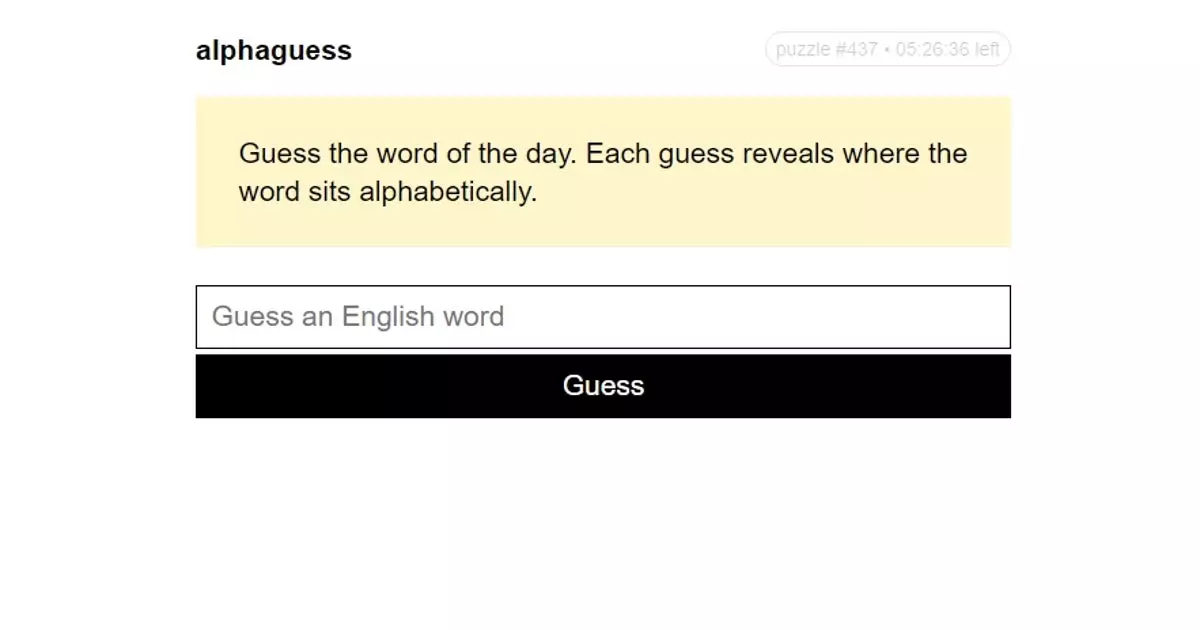Many of us find ourselves constantly searching for ways to enhance our productivity, but sometimes the very tools we choose can have the opposite effect. Recently, I came across a browser-based game called Alphaguess, which presents a simple yet surprisingly captivating challenge. Designed as a daily puzzle, Alphaguess invites players to guess a specific word based on limited information—specifically, whether their guesses come before or after the target word in the alphabet. At first glance, this concept appears straightforward, yet it offers a subtle complexity that can easily capture your attention for longer than intended.
My personal experience with Alphaguess was eye-opening. After 26 guesses and eight painstaking minutes, I finally uncovered the elusive word of the day. Despite knowing that the game isn’t designed to stump players, I felt genuine frustration with my struggle. For my initial guess, I opted for the word “muddle,” a deliberate choice meant to position myself in the center of the alphabet and effectively halve the available options. However, as each letter began to reveal its secrets, I found myself trapped in a mental maze, torn between the possibilities and my own faulty logic. The game’s design subtly highlights the tension between simplicity and complexity—a conundrum that provokes both confusion and satisfaction.
It’s intriguing to consider how we categorize games like Alphaguess alongside more intricate puzzle games such as Wordle or even Scrambled Maps. While these games infuse elements of lateral thinking and strategy, Alphaguess is devoid of such requirements. It strikes me that the term “puzzle” may not fully encapsulate its appeal. Instead, Alphaguess operates on a level more akin to a party game—entertaining and light, devoid of nuances that demand deep reflection. The game’s straightforward premise does not hinder its allure; rather, it creates a friendly yet compelling challenge that effortlessly absorbs one’s focus, reminiscent of simpler childhood games.
These browser games serve a dual purpose. On one hand, they provide an escape from the demands of daily life, offering a refreshing break. On the other, they can inadvertently consume more time than anticipated, as one round morphs into several. Within the confines of a well-crafted game, such as Alphaguess, players find a welcome diversion, much like engaging in the numberplate game during a long car ride—invigorating yet uncomplicated. The entire experience is not merely about reaching the endpoint of a successful guess; it’s about enjoying the journey, mixed with the thrill of uncertainty.
As I reflect on my experience, I must give credit to those designers and thinkers who have crafted these engaging distractions. Caroline Crampton’s newsletter that introduced me to both Alphaguess and Scrambled Maps highlights how interconnected our interests can be. These popular, quick-to-play games may often be dismissed as time wasters, yet they remind us of the joy in simple challenges that stimulate our minds even for brief moments. Whether it’s through a daily puzzle or a mindless click, sometimes we need to allow ourselves the luxury of distraction and appreciate the spark of fun it brings.

